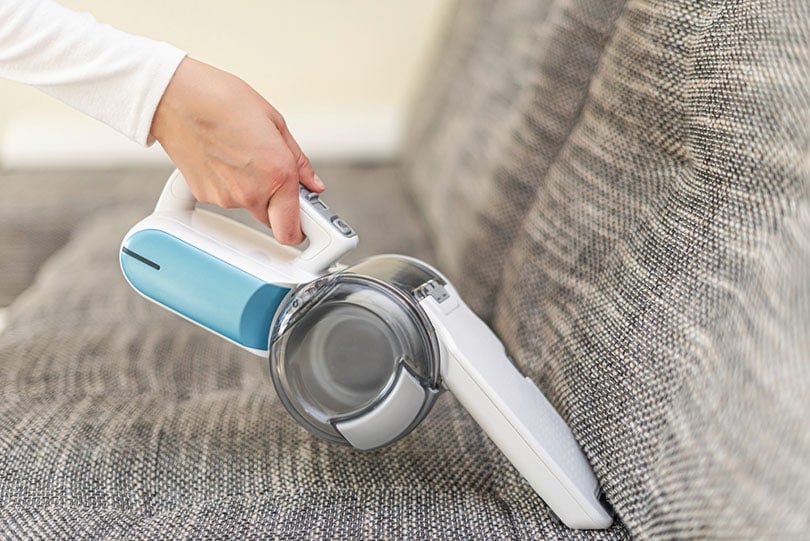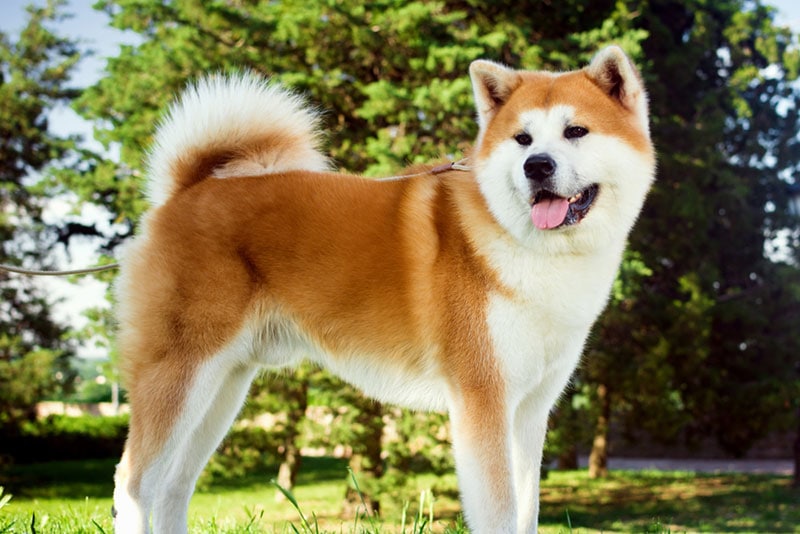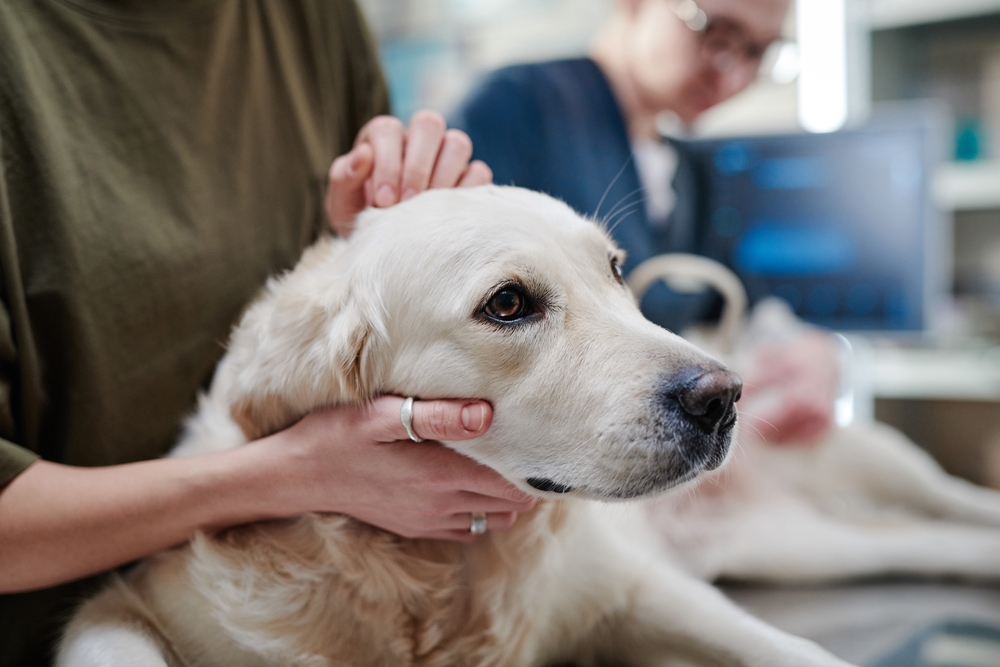Click to Skip Ahead
Around 10 to 20% of the population worldwide is allergic to dogs and cats, which is likely one big reason that “hypoallergenic” pets have become such a popular topic among animal lovers. If pet allergies are something that your household must worry about yet you’re considering adopting a dog, the Akita is probably not the best option for you.
The truth is that there is no such thing as a truly hypoallergenic dog, but some breeds shed less of the protein that people are allergic to than others. Unfortunately, the Akita is not known to be one of those breeds. These dogs do plenty of shedding and are not considered hypoallergenic in the least. Let’s discuss why and what dog breeds are better options if you have allergies and are looking for a pet.
First, Let’s Talk About What Causes Allergies to Dogs
When someone is allergic to something, their immune system thinks that it is a foreign, harmful compound, even if it’s not. The immune system is triggered to fight against the compound and produces an abundance of antibodies. These antibodies can result in symptoms like skin inflammation and runny eyes.
People can be allergic to all kinds of things, such as pollen, pet dander, mold, medication, and even certain foods like nuts and dairy. As to why people are being allergic to dogs, it all comes down to certain proteins that the dogs create. The Can f 1 salivary lipocalin protein is one major protein that causes allergies in humans. It’s most often found in the hair and dander of the dog, so it spreads around quickly when they shed. Any household that has a dog also has Can f1 proteins floating about within it. These allergens can also be found in a dog’s skin cells, urine, and saliva. There are multiple other Can f proteins that can cause allergies in humans, at the time of writing 7 dog allergens have been discovered..

Why the Akita Is Not the Best Pet Option for People With Allergies
Akitas have thick, double coats that don’t shed much—except twice a year, when their undercoats completely shed to make room for a whole new coat of hair. During these times, shedding can be so profuse that it comes out in clumps when an Akita is rubbed or petted. Even during low shedding times, these dogs must be brushed once or twice a week to keep their hair from getting noticeably all over the house.
All that hair carries allergen proteins and can quickly cause allergic reactions in anyone who is allergic to dogs. Therefore, Akitas are not ideal as household companions for people who are even slightly allergic to dogs.
What Are the Signs and Symptoms of Being Allergic to Dogs?
If you or someone in your household has never spent time around dogs before, it’s a good idea to figure out whether someone has an allergy before ruling out dog breeds like the Akita. After spending time at an animal rescue center or in the home of a friend who has a dog, the person in question should begin to experience allergy symptoms, which would help confirm an allergy reaction.
If symptoms are noticed, it’s a good idea to work with an allergen specialist to confirm whether a pet allergy is present. You can also see a specialist to be tested for allergens if you’re not comfortable exposing yourself to dogs to see if you react. The signs and symptoms to look out for include:
- Runny/Stuffy nose
- Watery/Itchy eyes
- Sneezing
- Coughing/Wheezing
- Chest tightness
- Skin rashes/hives

Treating and Managing Dog Allergies
If you decide to adopt an Akita even with allergies or you get another dog that causes allergy symptoms to appear, there are a few things that you can do to minimize discomfort. Depending on the severity, consistency, and types of your symptoms, the allergen specialist that you decide to work with may recommend options like:
- Steroid inhalers and/or nasal sprays
- Antihistamines
- Bronchodilators
- Immunotherapy
Managing dog allergy symptoms might require taking medication every day, especially if you are living with a dog. Therefore, you must seriously consider whether you want to deal with allergies before bringing a dog home. The last thing that you want to do is to have to find a new home for the dog later.
Tips for Combating Allergens in the Home
If you live with a dog and have allergies or someone moves into your household who has allergies, there are things that you can do to help keep allergens under control indoors. Just keep in mind that there is no fail-safe way to completely rid a home of allergens when a dog lives in it. Still, here are a few management tips:
- Keep a whole-house air purifier running in your home throughout the day and night.
- Make sure the dog stays out of the allergy sufferer’s bedroom and at least one major room in the home where they spend most of their time.
- Vacuum all rooms of the home daily to keep shed hair from piling up. Pay close attention to the corners, nooks, and crannies.
- Bathe the dog outdoors at least once a week to get rid of dead skin cells and loose hair. This can help keep allergens from becoming airborne.
- Brush the dog outdoors at least once a day.

Dog Breeds That Are Good Options for Those Who Suffer From Pet Allergies
While no dogs are actually hypoallergenic, some individual dogs shed fewer proteins that function as allergens than others.In addition studies have shown that Labradors have less allergens than Poodles which are often thought of as being hypoallergenic. So, if you suffer from allergies it is recommended that you spend time with the individual dog you are considering offering a home. Some breeds that people with allergies have had more success with include:
Final Thoughts
An Akita is not the best pet choice for someone who suffers from allergies. There is not much that can be done about their intense shedding throughout a year. Fortunately, there are several dog breeds that shed less and can work well as pets for people who are allergic to the average pup.
Featured Image Credit: Nikoleta Vukovic, Shutterstock












